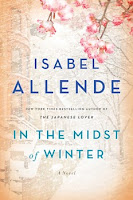The Other Shakespeare by Lea Rachel
The Shakespeare family live in Stratford, England. William Shakespeare is one of the siblings. Although William Shakespeare is world famous, this Historical novel is not about his life. It's about his sister, Judith's life. As a matter of fact, there isn't much in the book about William Shakespeare. Mostly his name appears in the letters he writes to Judith while she lives and works in London.
Judith Shakespeare's passion is writing. She dreams of writing for the theater one day. However, women are not thought of as playwrights and little else except homemakers. At this time, women were thought of as far inferior to men. Therefore, women did not need an education. A woman should do fine needlework, take care of the children, go to church. There is even a question of whether a woman can love another person as completely as a man.
This part of the novel is very sad. Judith's heartbreak is evident throughout the novel. Yet, Judith continues to fight and struggle to make her dream come true. Since there isn't a short bibliography or any way to tell how much of the novel is fiction vs. non-fiction, I felt frustrated. For example, in The Other Shakespeare by Lea Rachel, Judith is the author of the famous play, "Romeo and Juliet." What a shock to me. Since I have little knowledge about William Shakespeare's life, I only had knowledge that had been picked up here and there over the years.It is my understanding William Shakespeare wrote "Romeo And Juliet." So, did he write the play? Did his sister, Judith, really write the play? Is there a controversy still brewing today about who wrote the play? Surely, it is understandable that readers would wonder about the truth and seek extra information about this play.
It would have also been helpful to see a family tree. Of course, I am aware that Historical novelists have the right to bend the truth, but I have the right to know where they are bending it. This novel has no Foreward, no Prologue, no Family Tree. Without any type of references, I felt frustrated. Because the novel, The Other Shakespeare, is written beautifully, I enjoyed every page. My enthusiasm led me to write a note of thanks to the author. With a few proper references, I feel this would have been a five ***** novel, at least, for me.
Again, there is a quote at the end of the novel. "The author of this text made sure to embed at least one Shakespeare quote (if not more) within the narrative of every chapter. Can you find them all?" No, I didn't find them. Because I am not a Shakespearean student or professor. I've only read about three or four Shakespearean plays in my life. The question titillated my senses. I wondered which plays were quoted from and who had spoken the words. It would have delighted me to finish the book with the above question.
Once again, without my curiosity about what was fact and not fact especially about one of our most esteemed plays, I would have enjoyed the novel immensely. Did Shakespeare have a sister who wrote plays? Did Judith exist? Anyway, I really enjoyed the novel. I have to write that the ending left me nonplussed as to the rest of Judith's life. I felt dropped. Perhaps, there is a sequel coming up for the future. If not, why the drop off the cliff? Please Lea Rachel, what happened to Judith? Did James Burbage save her?
Let me state again, I fell in love with this character, Judith Shakespeare, who can speak so clearly to women in our contemporary times about inequality. Thank you for introducing me to her in such a wonderful writing style. I felt as though my feet were walking the lanes of the "real" Stratford. http://www.learachel.com/main/
Writer's Design / Cadence




Comments
https://www.goodreads.com/book/show/18811270-book-of-ages